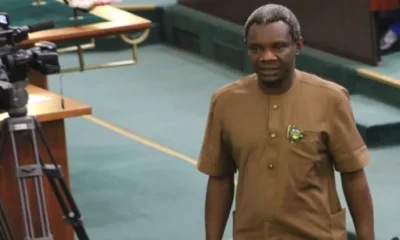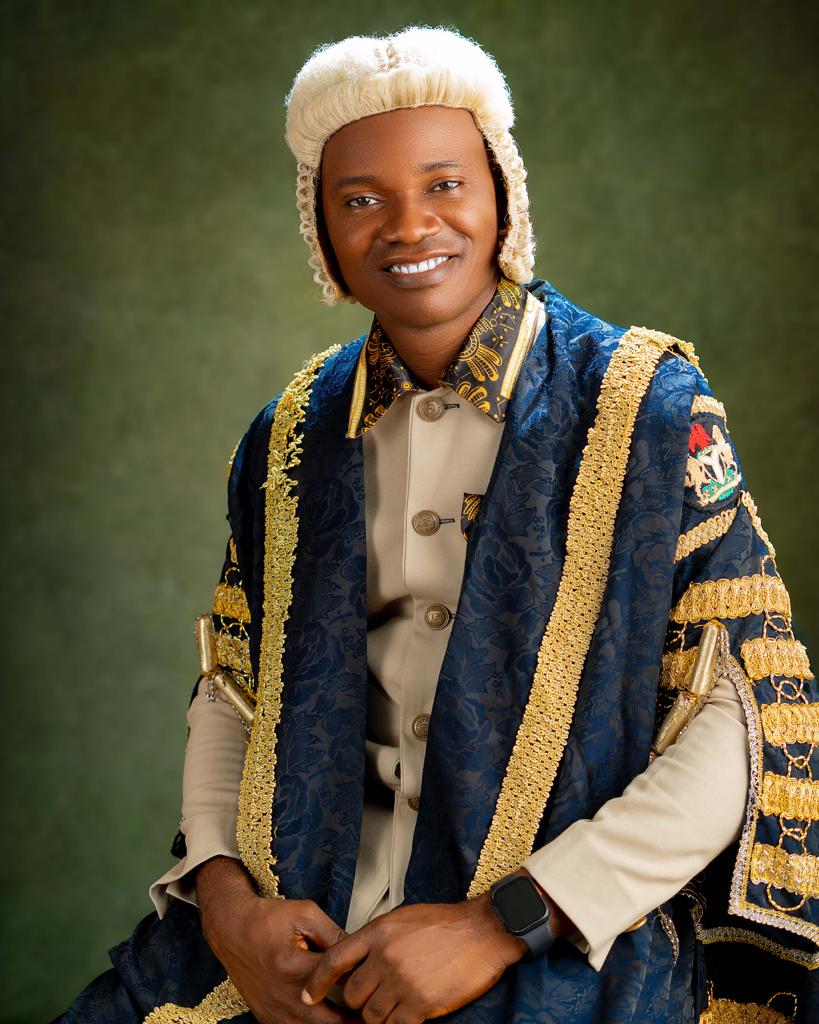NEWS
85% Of FG-Sponsored Students Abroad Don’t Return To Serve Nigeria – Education Minister

The Minister of Education, Mr. Tunji Alausa, has raised concern over the low return rate of Nigerian students sponsored abroad on government scholarships, revealing that 85 percent of them never come back to contribute to the nation’s development.
Alausa made this known on Friday during a one-day engagement with heads of institutions, bursars, and procurement directors in Lagos. He also announced a major policy shift—tertiary institutions with fewer than 2,000 students will no longer qualify for funding from the Tertiary Education Trust Fund (TETFund).
He said the Federal Government is revamping the education funding system to ensure that public funds are used more efficiently.
“Our evidence-based analysis showed that 85 percent of Nigerian students sent abroad on government scholarships never returned to contribute to national development. Many of the programmes they studied could have been handled effectively within our own institutions,” Alausa said.
To address this, he revealed that 28 Centres of Excellence have been established across public and private institutions to strengthen postgraduate education, drive research, and create job opportunities.
On institutional funding, the minister emphasized the need to stop rewarding poor performance and underutilization. He highlighted the imbalance of allocating the same resources to institutions with vastly different enrolment figures.
“Several polytechnics established as far back as 2019 have only 350 to 550 students enrolled, yet receive the same level of funding as institutions with over 18,000 students. This is inefficient and unsustainable,” he stated.
He announced a new benchmark: institutions operating for over five years with fewer than 2,000 students may become ineligible for TETFund support unless they scale up enrolment.
The engagement was also meant to review the 2024/2025 intervention guidelines and promote transparency in fund disbursement. Alausa reiterated that under President Bola Ahmed Tinubu’s directive, there is a renewed focus on ensuring value for every naira spent in the sector.
The minister also warned against the rapid proliferation of satellite campuses, describing it as “unsustainable and counterproductive.”
Echoing these sentiments, the Executive Secretary of TETFund, Sonny Echono, said the agency is shifting toward a more sustainable and performance-driven funding model. He encouraged institutions to embrace Public-Private Partnerships for initiatives like hostel development and innovation hubs.
Echono warned that institutions failing to access, utilize, or account for funds properly—or those not meeting academic and enrolment thresholds—risk being delisted from the TETFund beneficiaries list.
“This policy is not meant to punish but to safeguard the credibility and impact of TETFund interventions. We want to ensure that the Fund’s resources are directed toward institutions committed to high standards of governance, transparency and accountability,” he said.
He ended by calling for greater accountability and reform in the tertiary education system, urging participants to reflect and commit to best practices in governance and compliance.
Discover more from Asiwaju Media
Subscribe to get the latest posts sent to your email.
-

 POLITICS1 day ago
POLITICS1 day agoChinedu Ogah Decamps from APC to ADC, Joins Coalition—Video Claims Surface Online
-

 NEWS4 days ago
NEWS4 days agoNigerian Internet Fraudster Ehiremen Aigbokhan Accused of Stealing ₦460 Million Meant for Trump Inauguration
-

 ENTERTAINMENT5 days ago
ENTERTAINMENT5 days agoShocking! Davido Accused of Secret Dealings That Could Ruin His Career
-

 NEWS5 days ago
NEWS5 days agoPlateau Assembly Elects Nanloong Daniel as Speaker After Dewan’s Resignation
-

 POLITICS4 days ago
POLITICS4 days agoAmaechi Wife Stole N4B Every Month, Says Wike
-

 NEWS3 days ago
NEWS3 days agoEbonyi Village Lights Up with Self-Funded Electrification , Plans Road Construction
-

 POLITICS3 days ago
POLITICS3 days agoADC Targets Five Governors as More PDP, APC Leaders Join Opposition Coalition
-

 CAMPUS REPORTS5 days ago
CAMPUS REPORTS5 days agoAbandoned Newborn Sparks Outrage in Ikwo Community Near FUNAI Campus
-

 JOBS/SCHOLARSHIPS6 days ago
JOBS/SCHOLARSHIPS6 days agoCall For Applications: SEEDINVEST Acceleration Program For Nigerian Entrepreneurs (Up to N5 Million in Asset Grants + 6-week online Training)
-

 POLITICS3 days ago
POLITICS3 days agoADC Ebonyi Welcomes Massive Influx of New Members
-

 INSIDE NYSC7 days ago
INSIDE NYSC7 days agoSanwo-Olu Urges 7,887 Corps Members to Tackle Unemployment with Enterprise
-

 POLITICS6 days ago
POLITICS6 days agoNwifuru condemns killing of 13 Ebonyi indigenes in Anambra, vows justice



























